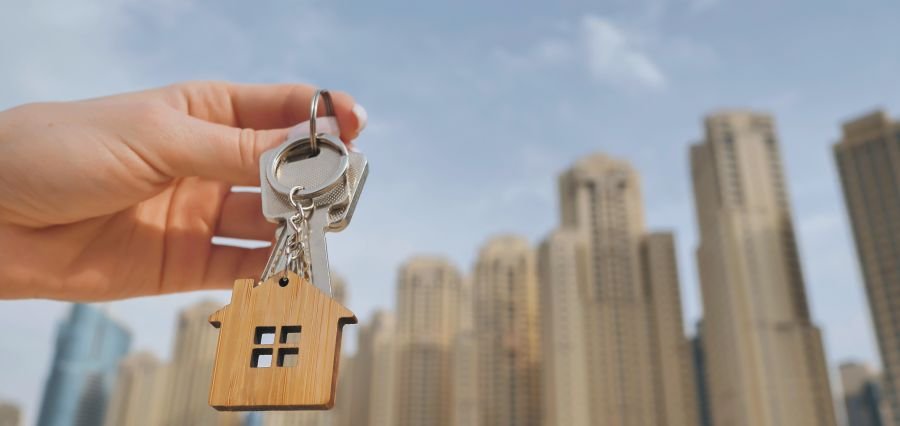Dubai, often heralded as a city of innovation and grandeur, has experienced a remarkable real estate boom in recent years. Once known primarily for its opulent skyscrapers and sprawling luxury developments, Dubai’s real estate sector has evolved into a global powerhouse, influencing not only the local but also the international business arena. Further, we head into the dynamics of Dubai’s real estate surge, examining its impact on local and global business environments.
The Drivers Behind Dubai’s Real Estate Boom
Dubai’s real estate market has surged due to several key factors:
- Strategic Location: Dubai’s position as a major crossroads between Europe, Asia, and Africa makes it a strategic hub for global business. Its connectivity through world-class airports and ports has attracted multinational corporations seeking a base in the Middle East.
- Economic Diversification: The emirate’s economic strategy has shifted from being oil-dependent to focusing on tourism, finance, and technology. This diversification has spurred development in various sectors, including real estate.
- Visionary Projects: Ambitious projects such as the Burj Khalifa, Palm Jumeirah, and Dubai Marina have positioned Dubai as a global icon. New developments continue to push the boundaries of architectural design and urban planning.
- Business-Friendly Environment: Dubai’s tax-free zones, regulatory reforms, and ease of doing business have created an attractive environment for investors and entrepreneurs.
- Population Growth: A steady influx of expatriates and international professionals has increased demand for residential and commercial properties.
Impact on Local Business
- Job Creation and Economic Growth The real estate boom has been a major driver of job creation in Dubai. From construction and architecture to real estate management and sales, numerous sectors benefit from the ongoing development. This job growth contributes to the broader economic expansion of the city.
- Boost to Tourism: Iconic real estate projects have become significant tourist attractions. Landmarks like the Burj Khalifa and Palm Jumeirah draw millions of visitors annually, boosting the hospitality sector and supporting local businesses such as restaurants, shops, and entertainment venues.
- Real Estate Market Dynamics: The surge in property development has led to a highly competitive real estate market. Developers are constantly innovating to attract buyers and tenants, leading to a diversification of property offerings—from luxury residences to affordable housing options.
- Infrastructure Development: The growth in real estate has driven improvements in infrastructure, including transportation networks, utilities, and public amenities. This development supports local businesses by enhancing connectivity and accessibility.
- Financial Sector Growth: The real estate boom has invigorated Dubai’s financial sector, including banks and investment firms. Real estate lending, investment funds, and property management services have expanded, contributing to the city’s financial robustness.
Impact on Global Business
- International Investment Hub: Dubai has become a magnet for international investors. Foreign direct investment (FDI) in Dubai’s real estate sector has surged as global investors seek to capitalize on the city’s growth potential. The influx of capital has positioned Dubai as a leading global investment destination.
- Global Real Estate Market Trends: Dubai’s real estate boom has influenced global market trends. The city’s innovative projects and investment opportunities serve as a benchmark for other international real estate markets. Developers and investors worldwide often look to Dubai as a model of modern urban development.
- Regional Economic Influence: Dubai’s real estate sector has a ripple effect on the broader Middle East region. As a leading financial and business center, Dubai sets standards and trends that influence real estate markets in neighboring countries, contributing to regional economic stability and growth.
- Global Branding and Marketing: The prominence of Dubai’s real estate projects has significantly boosted the city’s global brand. High-profile developments have garnered international media attention, enhancing Dubai’s reputation as a center of luxury and innovation. This branding attracts further international business and tourism.
- Economic Diversification Strategies: Dubai’s real estate success demonstrates the effectiveness of economic diversification strategies. As global businesses seek similar success, Dubai’s model offers valuable insights into how strategic investments in real estate can drive broader economic benefits.
Challenges and Considerations
While Dubai’s real estate boom has yielded numerous benefits, it also presents several challenges:
- Market Volatility: Rapid fluctuations in property prices and demand can create instability in the real estate market. Both local and international investors must navigate these dynamics carefully.
- Sustainability Concerns: The environmental impact of extensive real estate development is a growing concern. Ensuring that new projects adhere to sustainable practices is crucial for maintaining long-term viability.
Conclusion
Dubai’s real estate boom has not only transformed the local economy but has also made a significant impact on the global business environment. By driving job creation, boosting tourism, and attracting international investment, the city has solidified its position as a major player in the global real estate market. As Dubai continues to innovate and adapt, its real estate sector will likely remain a key driver of economic growth and a model for urban development worldwide.




